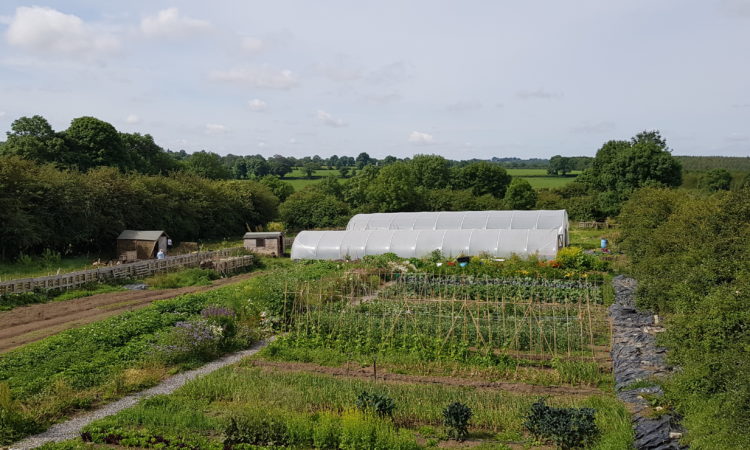There has been a surge in interest in local food, grown using regenerative methods, resulting in more nutrient-dense tasty food that improves the environment in the long-term and this has been a positive outcome of the pandemic.
Kate Egan and her partner Tom Carlin farm a total of 9ac in Westmeath, Ireland. “3ac are in mixed pasture and native woodland for horses. There are 2ac of nut and fruit orchard, 2ac of a developing food forest and 2ac of a market garden,” Kate said.
In normal times, they host international volunteers throughout the year, with the produce grown sold in health food stores, restaurants and a local box scheme. “With very few volunteers this year, we have had to reduce our plans for our business and put our workshops and tourism products on hold. We have been honored by the demand for locally grown food and how loyal our customers have been, especially given how, when the restaurants closed, it left us with a lot of unsold produce; so expanding our customer base was essential,” said Kate, who was previously an ecologist and an educator.
“Cheap food is subsidized at every corner, whether it is through labor, environmental pollution, poor feeds and feeding systems. If all food was supported the way big food industries are and all had to pay for their negative impacts – whether the cost of increased healthcare due to nutrient deficient food or the impacts of pollution, biodiversity loss or for better animal and human welfare – all food would be equal in cost and access and it would be easy to see what food people really want to eat.
“While there were little to no international volunteers, there was a wave of local volunteers that would come and help out for a day on Mondays which was their volunteer day, all socially distanced. This was a fantastic way to connect with the local community and share our farm with people at a time when doing things outdoors was tough.”
“We have had an increase in people taking part in our community-supported agriculture scheme this year and so have not had the need for a physical market,” said Kate. “Our community-supported agriculture scheme is an initiative where people buy a farm membership at the start of the farming year and they receive a portion of the food grown on the farm every week in return for the whole year.”
“Right now we are preparing our autumn crops, planting winter salads, garlic, winter onions and broadbeans and getting ready to put parts of the garden to bed for winter. So we are gathering up all of our compost materials and we will layer them on beds over winter covered with a water permeable membrane that blocks light; so the biology in the soil, all the little creatures, bacteria and fungi can break it down over winter and we can plant into it come spring,” she said.
Next year the couple plan to resume social farming as well as launching workshops, events and a toddlers group. “Of course very little is certain these days so we will take it slowly and respond to the situations that arise, trying to do the best for our customers and local community,” said Kate.
“As farmers, we have enormous responsibility in the way that we farm. What drives me is the potential for small farms like ourselves to be a positive role model and an oasis for wildlife.”
You can read the original article at www.agriland.ie
